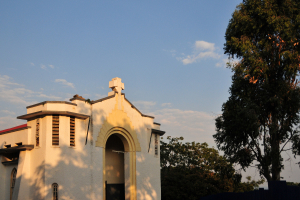Foreign Exchange Workers Protest Unfair Labor at Hershey Factory
Hundreds of foreign students have walked out of their jobs at a Hershey's chocolate packing factory in Palmyra, Pa. on Wednesday when what they thought would be a cultural exchange experience allegedly turned out to be a ploy for cheap labor.
Through Education Travel USA’s two-month State Department summer visa program, students from countries including China, Nigeria, Romania and Ukraine, came to the U.S. in the hope of improving their English, as well as to make some money and gain experience of American life first-hand.
However, many have reportedly disclosed that they have had little contact with Americans since arriving in the country and are actually working long and laborious shifts at the Excel plant. Their work has allegedly included packaging Reese’s candies, Kit-Kats and Almond Joys on fast-moving production lines and lifting heavy boxes. Some have said the work leaves them too exhausted to do anything else.
"I pick up boxes which are 40 pounds. I am 95 pounds," said Ukrainian exchange student Yana Brenzay, according to NBC. "If I don't do it, supervisors come to me and say, 'I will send you home'."
On Wednesday afternoon about two hundred students presented a management representative with a petition signed by several hundred students participating in the program. They then walked out, accompanied by several students coming off of the previous shift, and a protest ensued outside.
The group chanted slogans such as "Justice!" and “We are the students, the mighty, mighty students!” in English as well as their own languages, aiming that their absence would stop production.
“There is no cultural exchange, none, none,” Zhao Huijiao, a 20-year-old undergraduate in international relations from Dalian, China told the New York Times.
“It is just work, work faster, work.”
Students detailed how lifting boxes and standing for hours in uncomfortable angles on assembly lines has left them with bruises and injuries.
They say that the cost for obtaining their J-1 visas to be a part of the program is thousands of dollars more than they actually earn. After the fees associated with the program are deducted from their paychecks and rent is paid, many end up taking home just $200 a week.
Rick Anaya, chief executive of Education Travel USA told the New York Times that attempts to aid the students’ complaints have not been well received.
“We are not getting any cooperation,” he said. “We are trying to work with these kids. All this negativity is hurting an excellent program. We would go out of our way to help them, but it seems like someone is stirring them up out there.”




























